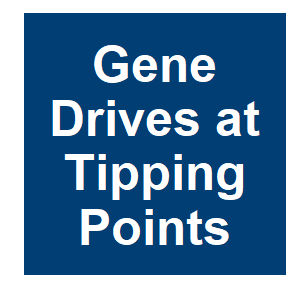Case Study 2: Oilseed Rape (Brassica napus L.)

|
Johnannes L. Frieß, Broder Breckling, Kathrin Pascher and Windfried Schröder,
Gene Drives at Tipping Points,
2020.

SPAGESelf-Propagating Artificial Genetic Elements (SPAGE) (Self-Propagating Artificial Genetic Element) technologies allow for a proliferation of genetic information on the populationPopulation level at a higher rate than usual Mendelian inheritanceMendelian inheritance. Currently projected developments of SPAGESelf-Propagating Artificial Genetic Elements (SPAGE) mainly aim at a reduction or suppressionSuppression of animal populationsPopulation which are considered to be harmful or undesirable (Oye et al. 2014). However, the application of SPAGESelf-Propagating Artificial Genetic Elements (SPAGE) is not limited to animals only. In principle, also plant populationsPopulation can be targeted (National Academies of Sciences 2016). The GeneTip case study on oilseed rape (Brassica napus) is intended to assess, which interactions play a role in a plant-specific context to address relevant ecological interactions that need to be fully explored in order to estimate potential risksRisk. More related to this: New study highlights success of gene drive technology with preventing mosquito-spread diseases Auditing preparedness for vector control field studies Bacteria-Laced Mosquitoes Limit Spread of Dengue Study Could Lead to Power Over Parasite
|



